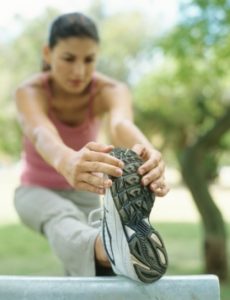(The Verge) – It’s that time of year again. Spring semester is drawing to a close and the promise of summer is nearing. It’s the final stretch, but the one thing standing in the way of sweet summer freedom is final exams…not to mention final papers, presentations, and a slew of other assignments. The end of the semester can be an extremely stressful time for college students. After all, when you take a small amount of time and add to it a large list of things to do, you’re left with a perfect formula for anxiety. Although the end of the semester is inevitable, the apprehension associated with it does not have to be. There are many easy ways by which students can work to minimize end of semester stress; the following happen to be some of my personal favorites.
1. Avoid Pulling All-Nighters
We’ve all been there. It’s going on midnight and that paper you’ve been putting off writing is due tomorrow. Bio-chem doesn’t stop for anyone, and neither does the clock. So you stock up on as many caffeinated beverages as humanly possible, mentally prepare yourself for the long night ahead, and promise yourself you’ll sleep in on the weekend. All-nighters are bound to happen at some point in everyone’s college career; some might even consider them somewhat of a right of passage. Although pulling an all-nighter may not be the absolute worst thing for you, it is best to try to avoid doing so, especially before exams. According to Business Insider, studies show that lack of sleep actually elevates cortisol, which is known as “the stress hormone.” As can be imagined, added stress is the last thing anyone needs right before final exams.
Aside from contributing to higher levels of stress, sleep deprivation is also proven to have a negative impact on one’s memory and concentration, both of which are obviously crucial factors in performing well on tests. Seeing these negative impacts, it is clear that all-nighters may not be all they are cracked up to be. It is much better to do as much studying as you can, and go to bed at a reasonable time. Getting some sleep, even if it is only a few hours, will have a much better impact on your ability to perform well on your exams than staying up until sunrise to study. Chris Orlando, a junior political science major at Monmouth couldn’t agree more. “I’ve learned through college that those all-nighters where I cram don’t help at all,” says Chris. “I would rather study the big stuff the night before, get a normal night of sleep, then try and remember the small stuff the morning before the exam.”

Just as not getting enough sleep can have a negative impact on your health and ability to concentrate, getting a little extra sleep can have a positive effect. Studies show that napping actually helps to release higher levels of serotonin, a chemical naturally produced by our bodies which aids in minimizing stress and increasing overall feelings of well-being. Napping is also known to increase levels of alertness and improve one’s concentration, a great benefit to have when studying and preparing for final exams! It is recommended that naps last no longer than a period of 30 minutes. At this time the REM stage of sleep begins, and waking up during this stage of sleep can leave you even more tired and groggy then you were before napping. Researchers suggest that a 10 minute nap is best as far as improving memory and productivity. So nap away! Just remember to set your alarm and leave enough time to complete your work.
3. Listen to Music
Cranking up the volume on the radio and singing along to your favorite song can make any day feel better. The same applies to stressful days, like those days leading up to final exams. Listening to music can raise your mood and help to relax and alleviate stress. Some studies even suggest that listening to certain types of music while studying, such as classical and instrumental, can actually increase your focus and help you to better recall details that you are studying. Senior Julia Mueller says her favorite song to listen to during finals is Queen’s “Under Pressure”, very suiting for those final exam study sessions! For more suggestions for good study songs, take a look at TheLovelyish.com’s list of “10 songs for the 10 phases of Finals Studying”.
4. Eat Healthy Snacks
When you’re in the middle of a serious “study sesh,” it’s easy to reach for junk food and other not-so-healthy snack choices. While these foods may briefly satisfy your hunger-needs, they are not as complimentary to your study-needs. Foods

5. Get Some Exercise
Exercising is another great way to relieve stress and anxiety. When you exercise, your body releases endorphins, chemicals which help to not only alleviate stress but also give you energy and keep you healthy. 30 minutes of light exercise such as walking, biking, or stretching can help you to relax and give you an extra boost of energy. Maria Gliddon, a senior Accounting major, says walking is her favorite form of exercise. Maria says, “Whenever I’m stressed I go for a walk. It helps me to clear my mind and unwind.”
6. Take a Break
Studying for hours on end can certainly take its toll on you. Working for long periods of time can get tedious, it may even get to the point where you are no longer able to focus or be as productive as you wish to be. At these times, it is best to take a short break before going back to your work. Taking a break can help you to unwind for awhile, leaving you refreshed and re-energized and better able to work and study. Getting up and changing the scenery can also help increase your creativity seeing as it allows you to change your thought pattern and become more relaxed.
Sarah, a senior psychology major, says her favorite way to unwind during finals is to have a girl’s night out. “It’s great to be able to spend time with friends and put the text books away for awhile.” she says “It’s a great way to get your mind off the stress of exams and just relax.” Some other good ways to spend a study break are to call a friend, watch your favorite show or movie, or reorganize your room. It’s good to allow yourself to relax, just remember to leave enough time to complete your work or studying!
Other Tips
If while studying you often find yourself being distracted by the need to login and check your accounts on social networking sites, you can use Leechblock, a fire-fox add on to block these sites until exams have passed or for whatever time period you wish.
Professors are there to help you, and they want to you succeed. If you are worried about a particular class or exam, don’t be afraid to approach your professor to ask for study tips or help in any topic you may have trouble with.
Most importantly, remember not to be too hard on yourself or push yourself beyond your limits. Exams are a stressful time for all college students, all you can do is your best. As long as you do your work to the best of your ability, study and understand the important material, and remember to breathe, you will do absolutely fine.

What are some of your favorite stress-relief tips for the end of the semester? Share your tips in the comment section.




